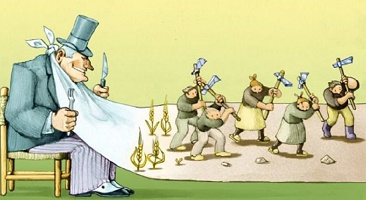Workshop
We explain what a workshop is, its meaning and what is its main objective. In addition, tips for a successful workshop.
-
What is a workshop?
The term workshop is an English loan that literally means “workshop . ” However, this word has become popular in the business and business world, in which it serves to designate a particular training and / or training event, in which employees or workers meet and learn skills or exercise their talents , in favor of improving a specific area of their performance.
The workshops are intensive courses , which are attended to develop some talent or skill as quickly and focused as possible, that is, always with an eye on the benefits that the organization will have when providing its team with these training tools.
For this, the workshops are usually in the hands of a specialist or professional in the area to be developed, usually hired under the figure of an outsourcing .
Although they often have a theoretical or talk part, the workshops are usually dynamic and tend to go straight to the point, so they encourage participation and an active, participatory attitude on the part of the attendees.
In that they are distinguished from conferences or courses. In addition, they do not usually address knowledge of a general nature, but applied: with a workshop you always seek to solve a problem or enhance a talent.
Also, these types of events are usually short (4 hours maximum) and sporadic, so that they involve intensive work that hinders the operation of the company as little as possible . They are usually shorter than a seminar or course , and also much more versatile: teamwork , specific talents, customer service, training, accident prevention, etc.
-
Tips for conducting a successful workshop

For a workshop experience to be successful, the following is recommended:
- Choose the space . A workshop is a very focused experience in problem solving or teamwork growth, which takes place in a short time. Therefore, it should be carried out in a space that does not hinder the experience: without sudden problems, with services verified in advance, where the people involved comfortably fit and, if possible, that gives them a feeling of warmth, confidence and intimacy, to encourage participation and not make them feel exposed.
- Have the right support material . A good workshop always has more material available than it uses during the session, so that it can adapt its strategies to the public, since not everyone learns the same or reacts the same to the same stimuli. It is convenient to have visual impact material, simple to understand, that encourages concentration and not distraction or dispersion.
- Maintain a good pace . It is estimated that the period of attention of the human being lasts about 45 continuous minutes, which is why the academic hours have that duration (and not 60 of the clock hour). In that sense, the rhythm of attention must be maintained during its maximum points and then provide rest, through changes in activities or tone, so as not to overwhelm and “burn” the group. Intensive, after all, does not mean exhausting or overwhelming. A 4-hour workshop should have at least a fifteen-minute break in the middle for attendees to rest mentally.
- Accredit attendees . Those who attend a workshop do so to grow and improve, but they must also feel that they have acquired something valuable, something to place in their resumes. For this, accreditations and diplomas are always a good idea.





